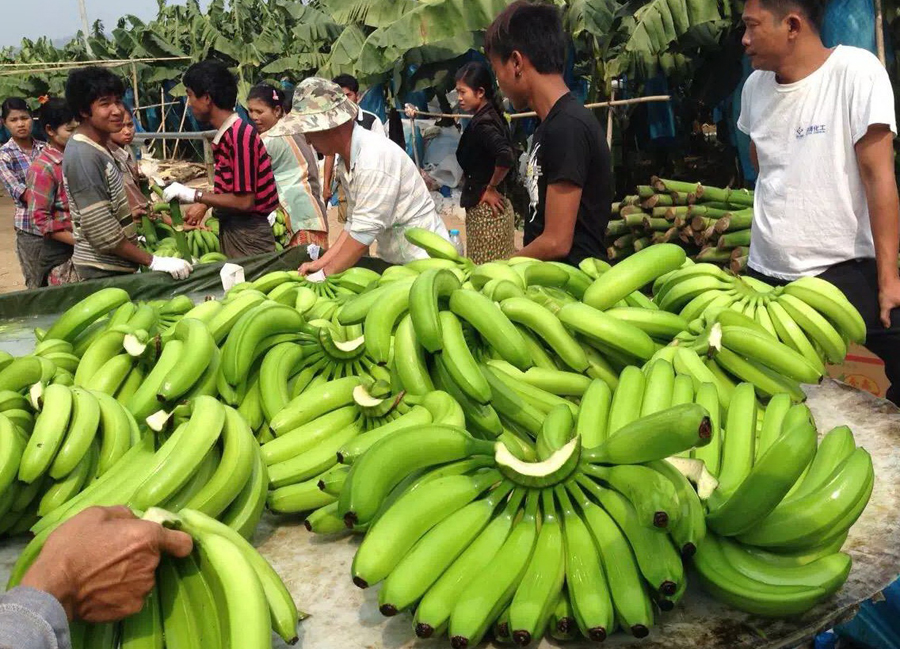
Agricultural products, such as bananas, are among the biggest imported items between Tengchong and Myanmar. [Photo provided to China Daily]
In the first 10 months of 2018, the value of the city's imports and exports reached $325 million, an increase of 48.4 percent over 2017.
In the past few years, agricultural cooperation with Myanmar has become one of the biggest growth points in Tengchong's foreign trade.
There are 22 local enterprises engaged in cooperative agriculture in northern Myanmar, with 40,000 hectares of cultivated area and more than 10 varieties of crops.
Jinxin Trade Co is one of the largest Tengchong-based companies involved in such business. The company has more than 700 trained workers at its six agricultural bases in northern Myanmar, growing plants including bananas, rubber trees, rice, corn and sugar cane.
Since 2009, the company has signed cooperative contracts with four Myanmar companies and plans to develop 24,000 hectares of agricultural land in the area.
"Our Myanmar partners help integrate the land, and our company will provide seedlings, agricultural supplies, technology and management," said Jiang Xiaohong, executive vice-president of Jinxin.
As of October, the company's imports and exports in 2018 exceeded 91 million yuan ($13.4 million), and it brought in about 150,000 metric tons of agricultural products, according to Jiang.
Besides contributing to Tengchong's economy, the company's business has also greatly benefitted the lives of local farmers in Myanmar by offering more than 6,000 job opportunities-which rises to more than 10,000 during the busy farming season.
"Local farmers' incomes have grown from an average 800 yuan per year to the current 4,500 yuan in the past few years," Jiang said.
By 2017, the company had built 343 kilometers of roads near its planting bases, constructed two steel bridges longer than 30 meters, 63 bridges spanning 5 to 20 meters and funded construction of two schools, a church and two small clinics in Myanmar, Jiang said.
Jiang said the company's experience reflects the development and transformation of Tengchong's foreign trade over the years.
In 1991, He Yuanshu, president of Jinxin, founded the company on behalf of his village. The company was mainly engaged in the timber import business, growing rapidly and becoming one of the biggest in Tengchong. After the timber business was banned by the Myanmar government in 2004, the company turned toward agricultural cooperation.
In the past few years, Tengchong has made great efforts to enhance the infrastructure and services of its port to handle the growing traffic between the two countries.
In 2017, the number of people entering or exiting through the port reached 878,000, up 20 percent yearon-year, accompanied by a year-on-year rise in the number of vehicles (47 percent), cargo volume (61 percent) and freight value (51 percent).
Currently, Tengchong airport is undergoing expansion and is expected to become an international transportation port soon, which will help the city build a one-hour aviation circle connecting itself with several countries in South and Southeast Asia.
Li Yingqing contributed to this story.
|






7740f3b5-9ecb-438e-9052-76cb2d4bb671.jpg)

